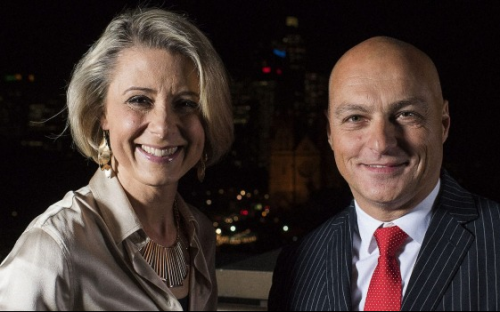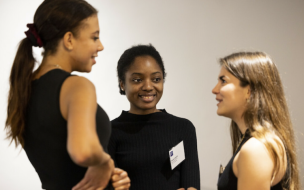The network of schools has committed to raising $20 million in funding to attract 320 new female candidates into MBA programs over the next three years. The network will match an employers’ contribution, up to 50% of the value of the degree.
It is the second major women’s drive in as many weeks, after 40 top US business schools and the US government made pledges to boosting opportunities for women in business at a White House summit. Experts argue business education is key to greater corporate diversity.
Macquarie Graduate School of Management, Sydney Business School, Monash Business School, Curtin University and University of South Australia have combined to deliver a Women in MBA program. The WiMBA partners business to identify female leadership potential and offers financial support for them to complete the degree.
The new deal will make the WIMBA program available to women in South Australia, Wollongong, Melbourne, Sydney and Western Australia for the first time.
“Studies show that a MBA has a significant impact on career pathways, with graduates reporting a promotion, increased responsibilities and an increase in their salary package,” said Professor Kristina Keneally, director of gender inclusion at Macquarie School.
But current female enrolments of 30%-35% are “just not good enough”, she added.
“We believe that by addressing the inequality at enrolment level we could have a real impact on the numbers of women working in senior management,” Alex Frino, Macquarie School’s dean, said.
Marie Wilson, University of South Australia pro vice-chancellor for business and law, highlighted the significance of partnering with business. “It gets business and industry thinking in the right way about women’s potential,” she said.
Professor Tony Travaglione, pro vice-chancellor at Curtin Business School, suggested that the local resource-based economy has made the school “acutely aware” of the need to equip women for leadership roles.
“[We] believe the introduction of scholarships specifically for women will encourage our business community to create the next generation of female leaders,” he said.
Globally there has been a push to place more women into business education through scholarship funding.
The 30% Club, an organization that campaigns to get 30% female boardroom representation, works with a cluster of schools to provide funding, including Oxford, Henley, Cambridge Judge, Imperial College and London Business School of the UK.
Nearly $70 million has been provided to more than 3,000 MBA students by business schools such as Georgetown McDonough, Cornell: Johnson and Dartmouth Tuck in collaboration with Forté Foundation, a group that promotes women’s business careers.
Last week more than 40 top US business schools including Kellogg School, Kenan-Flagler and Babson College mapped out strategies to increase opportunities for women in business.
Glenn Hubbard, dean of Columbia Business School, said at the time: “Creating an even playing field will require work in every stage of a prospective businesswoman’s career, and business schools are uniquely situated to effect change.”
RECAPTHA :
1a
18
2b
e3




 1
1 



Comments.